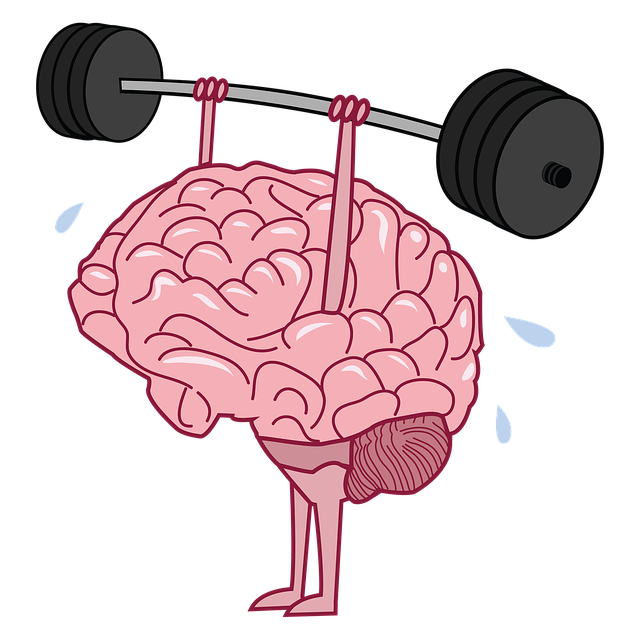Emotional Intelligence (EQ) is a key factor in navigating life challenges like Arvada Adjustment Disorder. By recognizing and managing emotions, both one's own and others', individuals can enhance social interactions, decision-making, communication, and relationships. High EQ fosters resilience and improves self-esteem, mental health, productivity, stress management, and overall life satisfaction. arvada adjustment disorder therapy provides a powerful tool for personal growth by identifying and overcoming barriers like low self-esteem, burnout, or depression through CBT, stress management, physical activity, and mindfulness. Consistent practice, social skills training, empathy-building exercises, and self-care are effective ways to cultivate EQ and maintain a healthy work-life balance.
Emotional intelligence (EQ) is a powerful tool that can significantly impact our daily lives, fostering healthier relationships and enhancing overall well-being. This article explores the concept of EQ and its profound effects on personal and professional spheres. We’ll guide you through identifying and overcoming challenges to boost your emotional intelligence, offering practical strategies for continuous growth. Learn how Arvada Adjustment Disorder Therapy can assist in navigating these paths to a more emotionally intelligent life.
- Understanding Emotional Intelligence and its Impact on Daily Life
- Identifying and Overcoming Challenges to Enhance EQ (Emotional Quotient)
- Strategies for Continuous Growth and Self-Improvement in Emotional Intelligence
Understanding Emotional Intelligence and its Impact on Daily Life

Emotional intelligence (EQ) is a person’s ability to recognize, understand, and manage their own emotions, as well as recognize, interpret, and influence the emotions of others. It goes beyond mere feelings; EQ involves using self-awareness and empathy to navigate social interactions and make thoughtful decisions. For instance, someone with high EQ can quickly adapt to changes, fostering resilience in challenging situations—a skill that’s invaluable in today’s dynamic world. This is particularly relevant in managing Arvada Adjustment Disorder, where emotional regulation plays a crucial role in recovery.
Understanding and cultivating emotional intelligence can profoundly impact daily life. It contributes to better communication, stronger relationships, enhanced decision-making, and improved mental health awareness. By recognizing and managing emotions effectively, individuals can boost their self-esteem improvement and cultivate a positive mindset that embraces mind over matter principles. This, in turn, can lead to increased productivity, better stress management, and a greater sense of well-being, making EQ a powerful tool for personal growth and overall life satisfaction.
Identifying and Overcoming Challenges to Enhance EQ (Emotional Quotient)

Identifying challenges is a pivotal step in enhancing emotional intelligence (EQ). Many individuals struggle with understanding their emotions and managing them effectively, which can stem from various sources. For instance, Arvada Adjustment Disorder Therapy highlights how life transitions or traumatic events can disrupt one’s emotional balance, leading to difficulties in daily functioning. Recognizing these barriers is crucial; they may manifest as low self-esteem, burnout, or even depression, all of which impede the development of EQ.
Overcoming these challenges requires a multifaceted approach. Self-esteem improvement techniques, such as cognitive behavioral therapy (CBT), can help individuals challenge negative thought patterns and build resilience. Burnout prevention strategies, including stress management practices and setting healthy boundaries, are essential to maintaining emotional equilibrium. Additionally, depression prevention methods, like regular physical activity and mindfulness exercises, contribute to emotional well-being and facilitate the process of EQ enhancement.
Strategies for Continuous Growth and Self-Improvement in Emotional Intelligence

Emotional intelligence is a skill that can be cultivated and enhanced over time. To achieve continuous growth in this area, individuals should incorporate regular practices into their routines. One effective strategy involves seeking professional guidance from a therapist specialized in Arvada Adjustment Disorder Therapy. These professionals offer valuable tools and techniques tailored to an individual’s unique needs, helping them navigate complex emotions and develop healthier coping mechanisms.
Additionally, engaging in social skills training and empathy-building strategies can significantly contribute to emotional intelligence development. Building strong connections with others fosters understanding and strengthens one’s ability to perceive and respect different perspectives. Moreover, prioritizing self-care practices is essential for burnout prevention, ensuring individuals maintain a healthy balance between their personal and professional lives.
Emotional intelligence is a powerful tool that can significantly enhance our daily lives, fostering better relationships and personal growth. By understanding its impact and implementing effective strategies, such as those outlined in this article, individuals can navigate challenges and improve their emotional quotient. Whether seeking help for an Arvada Adjustment Disorder or aiming to thrive in personal and professional settings, investing in emotional intelligence is a transformative journey that promises lasting benefits.














